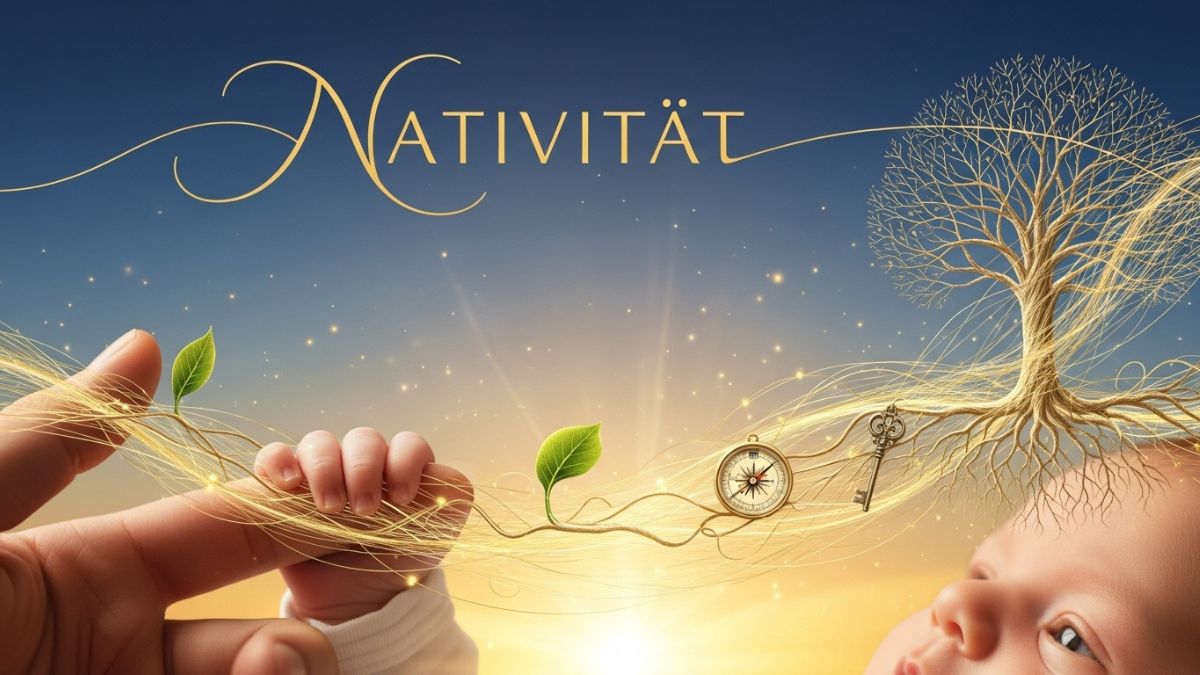Birth is a profound experience, one that shapes not only our existence but also our identities. The term “nativität” speaks to this essence of birth, intertwining the concepts of origin and individuality. As we delve into its meaning, we’ll explore how different cultures celebrate nativität and what it signifies in the broader context of identity. This journey will reveal connections between birth experiences and personal narratives while inviting us to contemplate how deeply intertwined these themes are in our lives. Join us as we embark on an exploration that illuminates the multifaceted nature of nativität.
What is Nativität?
Nativität, at its core, refers to the concept of birth and the origins that come with it. This term encapsulates not just the physical act of being born but also the cultural and spiritual significance tied to that moment.
In many traditions, nativität is celebrated as a time when new life enters the world, bringing forth potential and promise. It evokes feelings of joy and connection among families and communities.
The idea extends beyond individual births; it encompasses a collective understanding of how our beginnings shape who we are. Each nativity carries stories, histories, and identities waiting to be discovered.
From ancient rituals to contemporary celebrations, nativität serves as a reminder of life’s cyclical nature—a powerful force that unites us all in our shared experiences.
The Historical and Cultural Significance of Nativität
Nativität holds deep historical roots, intertwining with various cultures across the globe. It transcends mere celebration; it embodies a rich tapestry of traditions and beliefs.
In many societies, birth signifies hope and renewal. Ancient civilizations revered childbirth as a sacred event, often linking it to deities who represented fertility and creation. This reverence has shaped numerous cultural narratives over centuries.
Christianity further enriched the concept through the Nativity story, highlighting themes of humility and divine incarnation. The imagery associated with this narrative resonates widely during festive seasons.
Various customs emerged around nativität that celebrate both individual lives and collective heritage. From rituals meant to protect newborns to elaborate festivals honoring ancestral ties, each reflects unique values within communities.
As globalization unfolds, these traditions continue evolving while maintaining their essence—a testament to the enduring significance of birth in shaping identity across generations.
How Nativity is Celebrated Around the World
Nativity celebrations vary widely across cultures, each bringing its unique flavor to the tradition. In Mexico, Las Posadas reenacts Mary and Joseph’s journey with vibrant processions, culminating in festive gatherings filled with piñatas and traditional songs.
In Italy, the Feast of the Nativity is marked by elaborate nativity scenes called “presepi.” Families craft intricate displays that capture not just the holy birth but also local culture and history.
Meanwhile, in Ethiopia, Christmas coincides with a 43-day fasting period leading up to Gena. On January 7th, communities gather for church services dressed in white garments as they celebrate with singing and feasting.
India showcases diverse customs too; some regions incorporate colorful floral decorations alongside their nativity scenes. Each celebration reflects deep-rooted beliefs while fostering community spirit and connection during this sacred time.
The Connection Between Birth and Identity
Birth is often the first defining moment in a person’s life. It sets the stage for identity formation, influencing how we perceive ourselves and how others perceive us.
The circumstances surrounding our birth can shape our experiences. For instance, being born into a specific culture or social class imparts unique values and expectations. These factors play a crucial role in shaping individual identities over time.
At a psychological level, birth creates an emotional bond between individuals and their origins. This connection fosters feelings of belonging and understanding.
Furthermore, societal narratives around birth affect personal identity development. Celebrations linked to nativität reinforce cultural heritage, allowing people to connect with their roots more deeply.
As we reflect on our beginnings, we also confront questions about who we are becoming. The journey from birth to self-discovery is intricate but profoundly significant in understanding one’s identity.
Exploring Different Perspectives on Nativity and Identity
Nativität encompasses various dimensions, often shaped by cultural contexts. Different societies view birth not just as a biological event but as a profound journey that intertwines with identity.
For some, nativität is celebrated in religious ceremonies, marking the beginning of life within spiritual frameworks. These rituals create communal bonds and reinforce shared beliefs about existence and purpose.
Others approach it from a psychological lens. Birth experiences can influence one’s self-perception and relationships throughout life. The narratives surrounding our beginnings shape how we navigate the world.
Indigenous communities celebrate nativität through stories passed down generations. These tales connect individuals to their ancestry and place within the universe.
In contemporary society, discussions around identity have expanded to include personal choice and societal roles. Nativität now intersects with ideas of gender, race, and culture—highlighting its complexity in shaping who we become.
The Impact of Nativity on Personal Identity
The concept of nativität deeply influences personal identity. It’s not just about the moment of birth; it’s tied to culture, heritage, and roots.
Individuals often associate their sense of self with where they were born. This geographic origin shapes values, traditions, and beliefs. A person’s upbringing within a specific community can define their worldview.
Nativität also plays a role in how people connect with others. Shared experiences linked to birthplace foster bonds and create common ground. It enhances empathy toward those from similar backgrounds while influencing perspectives on diversity.
Moreover, as individuals grow and explore new environments, they might redefine what nativität means for them personally. This ongoing process allows for an evolving identity that reflects both past influences and current realities.
The interplay between birth and identity is complex yet fascinating, shaping who we are throughout our lives.
Conclusion:
The concept of nativität encompasses much more than the mere act of birth. It is a rich tapestry woven from cultural, historical, and personal threads that define who we are. Understanding nativität allows us to connect with our roots and embrace the diverse celebrations that honor this profound experience across different cultures.
As we delve into the essence of birth and identity, it becomes clear how intertwined these elements are. Each person’s journey begins with their unique story, shaped by various influences—family traditions, societal norms, and personal experiences all play a pivotal role in forming our identities.
Exploring perspectives on nativität sheds light on how individuals perceive their own existence within a larger framework. Whether viewed through religious lenses or secular interpretations, each perspective adds color to the understanding of what it means to be born into this world.

